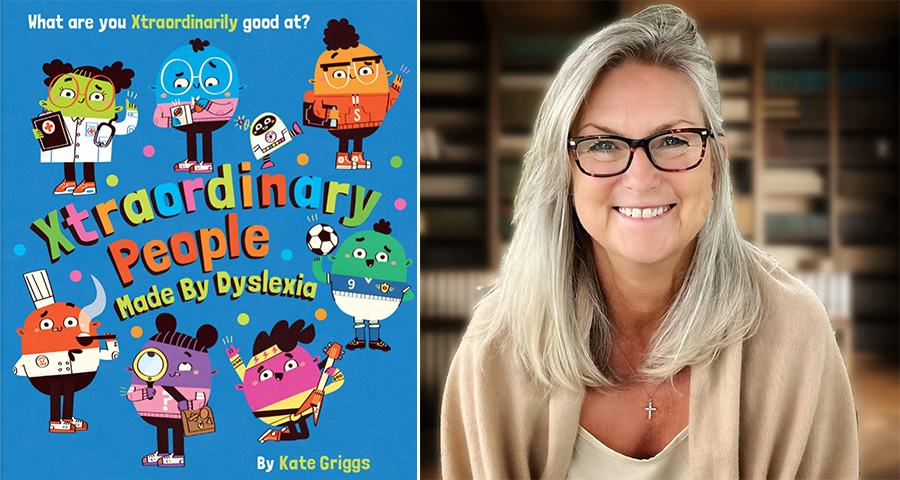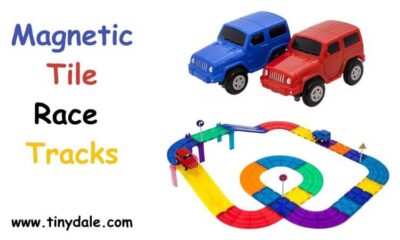Advice
Dyslexic Kids’ Confidence | Kate Griggs Made By Dyslexia


Expert / 26 November, 2024 / My Baba
Did you know that 1 in 5 people are dyslexic? Dyslexic brains literally think differently and that’s a good thing! If your child is dyslexic, here are some tips on helping build dyslexic kids’ confidence and help them understand the brilliance of their Dyslexic Thinking.
Know that your child is brilliant – and their thinking is crucial to our future
Your dyslexic child is super smart – they just think differently. And this thinking is highly valuable in the real world.
Made By Dyslexia has identified six key Dyslexic Thinking skills that dyslexics naturally excel at: visualising, imagining, communicating, reasoning, connecting and exploring. While traditional tests in schools disadvantage dyslexics, measuring them against the very things they find challenging, it’s these Dyslexic Thinking skills that are sought after in every job.
Made By Dyslexia’s recent Intelligence 5.0 report found that Dyslexic Thinking skills are the most in-demand in every sector across the globe. The skills that traditional tests measure in schools are the ones that are quickly being taken over by technology like AI. This places a premium on things that AI can’t replace, such as creativity, complex problem-solving, lateral thinking – the exact skills that come naturally to dyslexics. So your child is crucial to the fifth industrial revolution that we’re entering now, where more and more jobs will be working alongside advanced technology.
Spot your child’s strengths
School can be tricky for dyslexic kids, who often struggle with learning to read, write and spell. This can lead to them feeling embarrassed by their dyslexia or even stupid, which they are obviously not.
If you’re a parent of a dyslexic child, the most transformative thing you can do is to help them spot their dyslexic strengths and value their Dyslexic Thinking skills, instead of being defined by their challenges.
Dyslexic Thinkers have incredible strengths in areas such as creativity, problem-solving and communication skills. For example, 40% of entrepreneurs are dyslexic because dyslexics see the world differently, making them fantastic at imagining things or coming up with new ways to approach issues. Dyslexics are also great at exploring, which can lead to curiosity, questioning and challenging the norms. It’s no surprise that both Steve Jobs (who invented the iPhone) and Thomas Edison (who invented the lightbulb) were both dyslexic.
Build their self-esteem
A recent Parliamentary report found that 88 percent of parents say their child has poor self-esteem because of their dyslexia and 78 percent of parents said their child feels embarrassed because of their dyslexia.
Spotting Dyslexic Thinking and focusing on the amazing strengths it gives your child, such as communication, problem-solving and creativity, is key to building self-esteem and building dyslexic kids’ confidence, because otherwise, kids can lose confidence in themselves and their ability to learn.
Traditional school exams don’t value these Dyslexic Thinking skills, so there’s a real danger that when children find things challenging they lose heart and mistakenly believe they are less able or less intelligent than their peers (when neither is the case). But as mentioned above, Dyslexic Thinking skills are highly sought after in the world of work, and four in five successful people with dyslexia attribute their success to their Dyslexic Thinking.
Every dyslexic child should be encouraged to be proud of how they think and know that they can make a real difference to society. Focusing on things they are naturally good at, instead of what they find tricky, boosts Dyslexic Thinkers’ self-esteem. In fact, Dyslexic Thinking skills are incredibly rare as only 1 in 5 people have them – so share that fact with your child and highlight how unique and special they are!
Support them with positive praise
Research suggests that we are most motivated to improve when we hear negative and positive comments in a ratio of 1:5. That’s five pieces of praise for every one negative comment.
Positive praise is vital for dyslexic children. Even if certain things are challenging, each small win should be celebrated. It’s vital to acknowledge and highlight Dyslexic Thinking skills in every dyslexic child, so they can experience the success they deserve. And ask teachers to praise your child too, to help reinforce this.
Empower your dyslexic child
Not only is focusing on a child’s Dyslexic Thinking skills crucial to building positive self-esteem, but it will empower them to find the careers that they’ll be successful at and feel fulfilled in. Dyslexics are masters at working harder in order to succeed, developing grit, determination and resilience along the way.
For instance, I recently interviewed young vegan chef, CBBC presenter and YouTube star Omari McQueen on an episode of the Lessons in Dyslexic Thinking podcast. Omari said he found that school and his extraordinary dyslexic mind didn’t quite fit, but then he discovered his passion for cooking at home. Now, he runs his own vegan dip company, presents a CBBC TV cookery show, hosts his own YouTube channel and has written a cookbook. This proves that when dyslexic children are empowered to find and focus on their Dyslexic Thinking skills, they are truly unstoppable.
Finally, remember that the label is a good thing. Dyslexia comes with superpowers and kryptonite and once you understand that, the challenges don’t seem so bad! Help your kids find what they’re good at – and do lots of it. There are so many strengths that come with dyslexia and helping children understand this and find their particular strengths are key to building their confidence. By focusing on this, they can and will go far.
Kate Griggs is the founder and CEO of the global charity Made By Dyslexia, host of the Lessons in Dyslexic Thinking podcast and the author of Xtraordinary People (a book for young Dyslexic Thinkers) and This is Dyslexia – New Edition (a revised and updated book for adult Dyslexic Thinkers).
READ NEXT
Choosing A Mainstream School For A Child With Special Educational Needs
Helping Dyslexic Children Recognise Their Unique Thinking Skills Beyond Exams
-

 Destination6 months ago
Destination6 months agoSingapore Airlines CEO set to join board of Air India, BA News, BA
-

 Breaking News8 months ago
Breaking News8 months agoCroatia to reintroduce compulsory military draft as regional tensions soar
-

 Tech News10 months ago
Tech News10 months agoBangladeshi police agents accused of selling citizens’ personal information on Telegram
-

 Breaking News8 months ago
Breaking News8 months agoBangladesh crisis: Refaat Ahmed sworn in as Bangladesh’s new chief justice
-

 Gaming7 months ago
Gaming7 months agoThe Criterion Collection announces November 2024 releases, Seven Samurai 4K and more
-

 Toys10 months ago
Toys10 months ago15 of the Best Trike & Tricycles Mums Recommend
-

 Toys8 months ago
Toys8 months ago15 Best Magnetic Tile Race Tracks for Kids!
-

 Guides & Tips8 months ago
Guides & Tips8 months agoHave Unlimited Korean Food at MANY Unlimited Topokki!
























